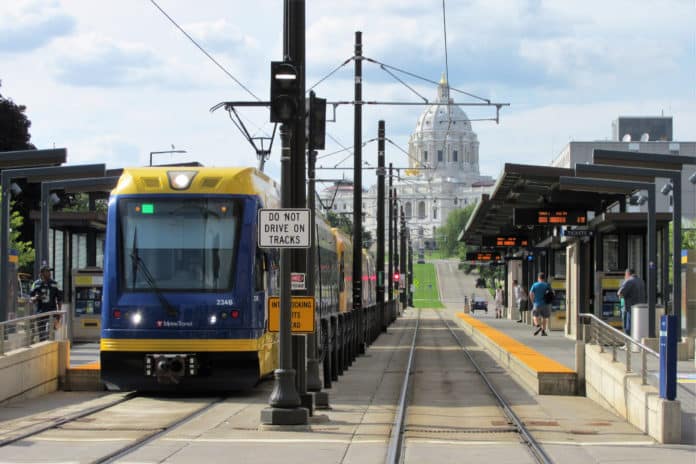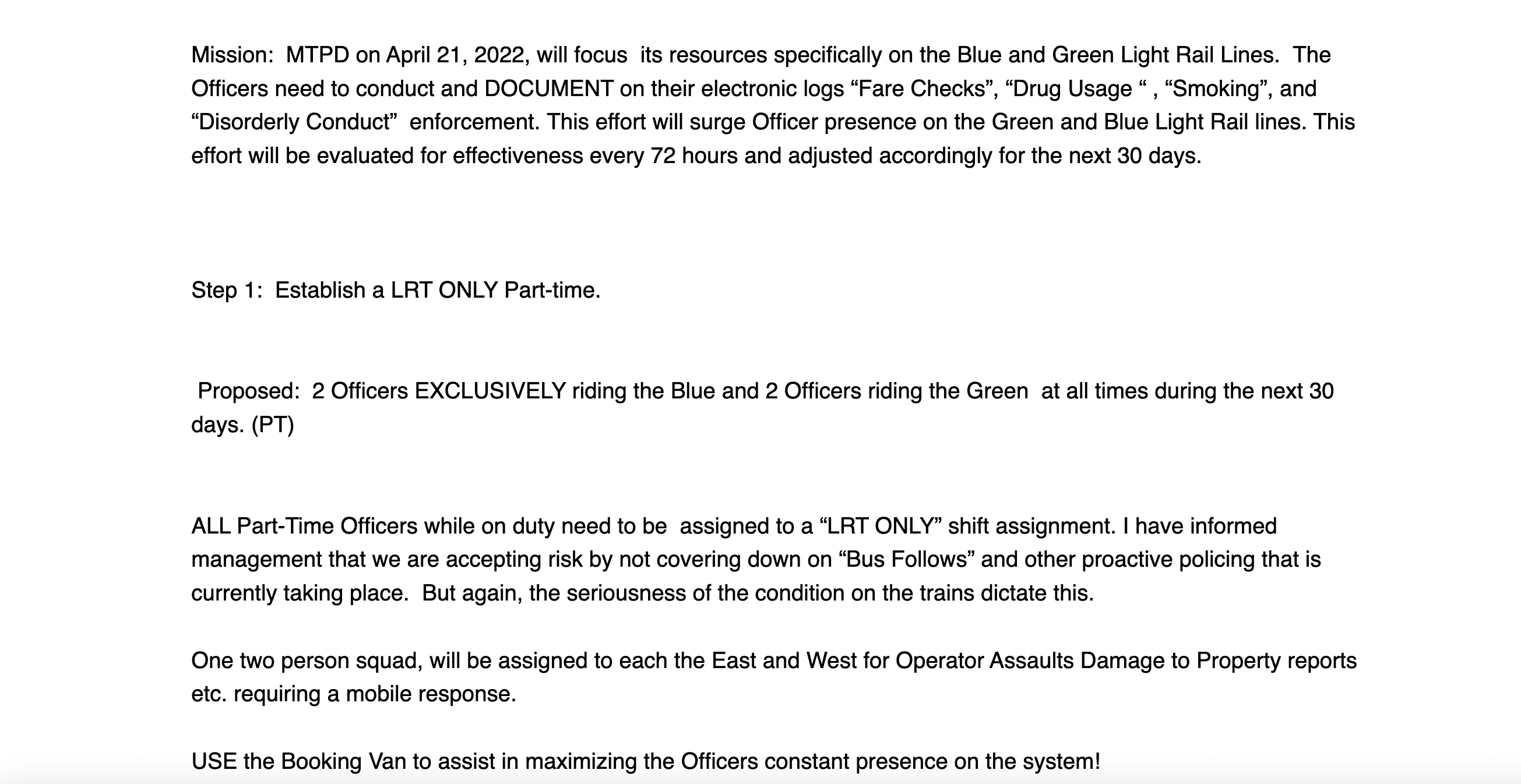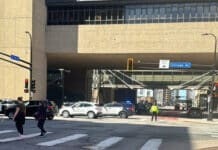
Bad behavior and criminal activity have become so endemic on Metro Transit’s light rail that the chief of police is diverting already limited manpower from “proactive policing” in order to establish more of a presence on the trains.
In an email to Metro Transit Police Department leadership last Thursday, Police Chief Eddie Frizell called for “immediate action” to address numerous concerns about rider behavior and safety on the light rail transit (LRT) system.
Frizell implied many people have been resuming their use of public transportation, ostensibly as they return to regular in-person work. He said they have been “very vocal” in making complaints about “things they are not accustomed to” seeing.
“These complaints are starting to drive the narrative. Before this commentary becomes ingrained in those returning to the work place, we must take immediate focused action to address these repeated concerns on the system,” Frizell says in his email.
To address these complaints, Frizell is asking all part-time officers to be assigned an “LRT only” shift assignment, where they would ride the transit and enforce rules on disorderly conduct, smoking, drug use, and fare checks.
“This effort will surge officer presence on the Green and Blue Light Rail lines,” the email reads. “This effort will be evaluated for effectiveness every 72 hours and adjusted accordingly for the next 30 days.”
Police Chief Frizell acknowledged, however, that this course of action assumes “risk” because it forces officers to ride LRT for hours at a time, rendering them incapable of responding to other calls.
According to the email, “one two-person squad will be assigned to each the East and West for Operator Assaults Damage to Property reports etc. requiring a mobile response.” In other words, a very limited number of officers will be assigned to cover the rest of the metro area, a source said.

“I have informed management that we are accepting risk by not covering down on ‘Bus Follows’ and other proactive policing that is currently taking place,” Frizell writes. “But again, the seriousness of the condition on the trains dictate[s] this.”
The Metro light rail has long been struggling with crime — the number of offenses in 2020 alone clocked in at 3,173, despite an enormous drop in ridership due to the COVID pandemic. Most of these crimes included trespassing, vandalism, theft, fraud, and drug violations.
But crime continues to take place elsewhere in the Metro system as well. This past weekend, a man was stabbed to death on a city bus after a “verbal altercation” in the wee hours of the morning.
Robert Leon Commodore, 53, was pronounced dead at the scene with a “stab wound to the left side of the neck.” No arrests have yet been made.
Metro police have also been struggling with low morale, understaffing, and low job satisfaction, as results from an internal survey last October revealed. The department has an authorized strength of 170 but is down to 82 full-time officers, a source said.
“Our police department regularly reviews and discusses deployment strategies. Generally, officers are directed to locations where there is the greatest demonstrated need for police attention, based on calls for service and other feedback from staff and customers. Light rail has been and continues to be an area of focus,” a Metro Transit spokesperson told Alpha News.
“In recent weeks, we have asked patrol officers to spend more time on light rail, as they are able,” he added. “The number of patrol cars in service at any given time varies based on staffing and other considerations, but we commonly have several patrol cars in service.”















